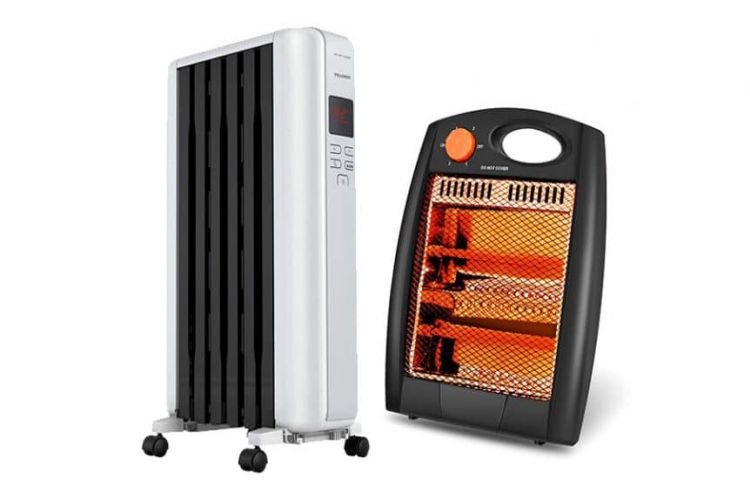 Are you in the market for a new heater and don’t have a lot of time or money to burn? First, the great news: there’s a lot to choose from, and such a competitive and cluttered market means competition and choice drive innovation and keep prices low. The latest innovative electric heater range, which can be perfectly suited to both the home and commercial consumer, includes ol’ faithful but now highly energy efficient radiant heaters, stylish panel heaters, compact fan heaters for instant heat, ceramic heaters, and many more.
Are you in the market for a new heater and don’t have a lot of time or money to burn? First, the great news: there’s a lot to choose from, and such a competitive and cluttered market means competition and choice drive innovation and keep prices low. The latest innovative electric heater range, which can be perfectly suited to both the home and commercial consumer, includes ol’ faithful but now highly energy efficient radiant heaters, stylish panel heaters, compact fan heaters for instant heat, ceramic heaters, and many more.
What you may also have heard, however, is that oil is making a big comeback in the heater game – and that’s most certainly true. But what many people don’t understand is that an oil-filled heater is still an electric heater – because they run on electricity, not the diathermic oil in their name. Actually, the oil is there as a heat reservoir, meaning that, unlike most electric heaters, the electricity doesn’t heat up the air and push it out into the room, it heats up the oil, which then stores and releases that heat energy over time for a comfy room that stays warm for longer.
Unsure which electric heating option is best for your space and requirements? Let’s break it all down:
-
Function
No matter what heater you get, you just want to be warm. The conventional electric heater simply turns volts into heat energy, and that happens both efficiently and quickly. With the oil heater, though, the warming up process may be a bit longer but so too is the retention and gradual release of that heat over a longer period of time.
-
Safety
With the ‘bare hand’ test, an electric heater will normally cause a bigger injury much quicker than with the oil-filled alternative and are risk of igniting nearby combustible materials and the inherent dangers of higher voltages. For a ‘turn on and forget’ solution, the oil-filled heater is safer because of the lack of an exposed heating element.
-
Environment
These days, and especially as we head into the exciting next decades, electricity is becoming ‘greener’ and electric heaters are always getting more energy efficient. The oil heater, however, is ultimately the more sustainable choice, especially given that the oil can circulate quite safely and effectively for years. However, the oils must be disposed of properly, and long-term heating with an oil-filled heater should take ventilation into consideration.
-
Cost
With the product choice on the market at present, rest assured you can find a heater no matter the budget. The bigger consideration is therefore the running costs, and there’s no escaping that while electric heaters basically require consistent voltage to ‘do their thing’, oil heaters will keep heating a room for some time even if the power is cut.
-
Portability
There’s little doubt that if you’re shivering and you need to heat up quickly, a small, portable, simple electric heater is definitely the easier way. While still usually portable, oil-filled heaters should be regarded as more of a ‘slow burn’ option for all-day, efficient operation, and quite often they’re clearly the heftier but also more durable option.
-
Noise
While many electric heaters are very quiet, there’s little doubt that oil-filled heaters are on almost all occasions even quieter – even silent. That’s because there will always be some sort of audible effect of the constant flow of volts to the electric heater, while in the alternative it is heated – and silent – oil that is doing the heating.
Are you ready to make the wisest choice for your space, requirements, and budget? When product diversity is as vast as it is in the world of heating, there’s a lot to consider: technology type, capacity, efficiency, longevity, safety features, convenience, noise, and more. For more information about electric heaters, oil-filled heaters, and many more options to make your important spaces cozy, don’t be shy to get in touch with our heating industry specialists.




